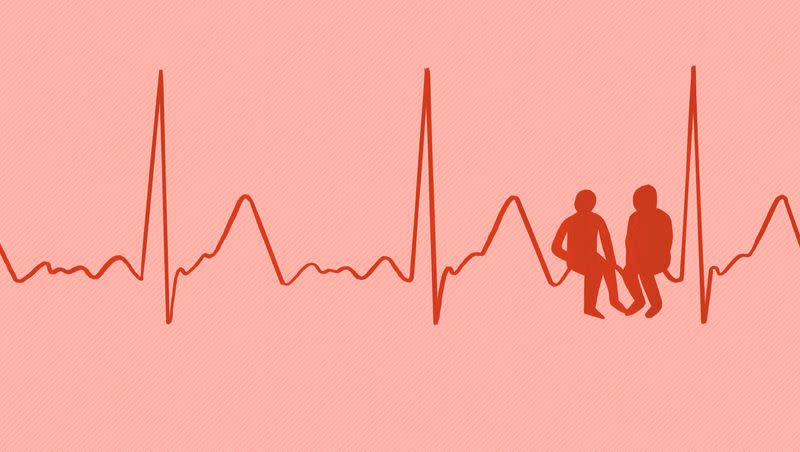Calculating heart disease risk; PTSD and women’s heart, brain health

The American Heart Association is meeting in Philadelphia this weekend for its international scientific session, so cardiovascular health is all over the news. This week’s health briefs focus on two things you should know to keep your heart and that of those you love healthy.
Cardiologists release new heart disease risk calculator
The new trademarked PREVENT risk calculator for cardiovascular disease has been introduced in the journal Circulation. The calculator includes cardiovascular, kidney and metabolic health measures in its score, estimating the 10- and 30-year risk of total cardiovascular disease for those age 30 and older. It’s designed to help cardiologists and other health professionals quantify the risk and come up with preventive or early treatment strategies for individual patients.
PREVENT stands for Predicting Risk of cardiovascular disease EVENTs, per the release.
It calculates the risk of heart attack, stroke and — this is new — heart failure.
According to the association, the calculator was developed using health information from more than 6 million adults, including people from diverse racial and ethnic, socioeconomic and geographic backgrounds. Experts created the equations using information in national databases, large research studies and electronic health records.
Research has shown strong connections among cardiovascular disease, kidney disease and metabolic disease, which includes Type 2 diabetes and obesity.
The association’s 2023 Statistical Update says 1 in 3 U.S. adults has three or more risk factors that contribute to cardiovascular disease, kidney disease and/or metabolic disorders. As the underlying conditions of the syndrome worsen, the risk of heart attack, stroke, and/or heart failure increases.
Per the association, “The PREVENT risk calculator uniquely quantifies risks for cardiovascular disease for each biological sex. As more research has been conducted specifically in women, this is an important way to understand their unique differences in cardiovascular disease presentation and risk factors.”
A risk calculator uses health, demographic and sometimes socioeconomic information in equations to estimate risk.
This calculator uses screening tests that are commonly conducted in primary care, including blood pressure measurement; blood tests for cholesterol, blood sugar and kidney function. It also includes questions about tobacco use and whether people take medications for cardiovascular risk factors. All of those are entered in the calculator along with age and sex to estimate the risk.
PTSD symptoms in women and risk of heart, neurocognitive diseases
Carotid artery disease risk rises when women have high levels of post-traumatic stress disorder, according to a study in JAMA Network Open. The study also found that for women who have both the Alzheimer’s risk gene APOEε4 and PTSD at a high level, the chance of greater brain small vessel disease and lower cognitive performance rises.
“Women have double the risk of PTSD relative to men,” wrote Rebecca Thurston, of the University of Pittsburgh, and her colleagues. “PTSD is associated with a 50% to 60% increased risk of incident cardiovascular disease and elevated stroke and dementia risk.“
She said that while research increasingly links PTSD to women’s cardiovascular and neurocognitive health, there are still a lot of unanswered questions.
The researchers examined data involving 274 women from the MsBrain study, which investigated menopause and brain health among women aged 45 to 67. That study included testing for the APOEε4 gene which has been linked to a higher incidence of Alzheimer’s disease, as well as tests that indicate carotid artery disease, scans that reflect small vessel disease in the brain, cognition tests and assessments of PTSD symptoms, among others.
According to a news release on the study, “higher PTSD symptoms in APOEε4 gene carriers were associated with poor cognitive performance in multiple areas, including attention and working memory, semantic fluency, processing speed, and perceptual speed.”
The researchers concluded that PTSD symptoms are associated with declines in both cardiovascular health and neurocognitive health, the effect worse for women with that genetic allele profile.
“PTSD is a major women’s health issue, affecting 10% of women in their lifetime. Our findings point to an at-risk population that may warrant early intervention and prevention efforts to reduce cardiovascular and neurocognitive risk at midlife and beyond,” they wrote.

